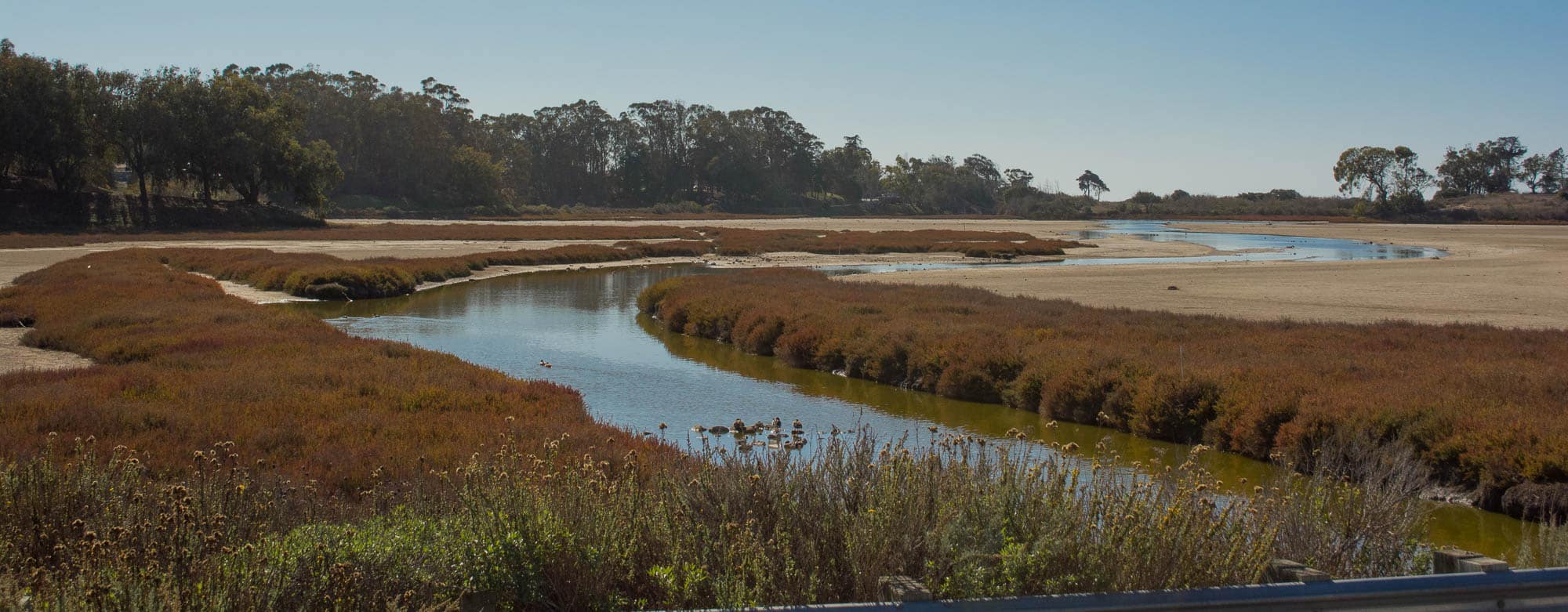Reschedule pending due to rain cancellation: Devereux Slough Restoration Revisited
Field Trip with Lisa Stratton, Darwin Richardson, and Mark Holmgren.
10:00 a.m. – 1:00 p.m.
Participation is limited to 20.
Advance registration at synature@west.net or 805/ 693-5683.
Members $10. / Non-members $25. / Children $5. Payment can be made via check or cash on the day of the field trip or in advance of the trip using a credit card online (once advance registration is completed).
Featured image of Devereux Slough by Owen Duncan
This trip will explore the Devereux Slough ecosystem, a wonderful coastal estuary on the south coast. The lower Devereux Slough is part of the Coal Oil Point UC Reserve and is designated by the Audubon Society as an Important Bird Area, based on its global importance to bird populations. The upper Devereux Slough had been bulldozed and filled in the 1960s to create a golf course and was acquired in recent years by UCSB. Last winter, a massive restoration project was begun to restore the historical conditions of the upper slough and adjacent mesa. This exciting project continues and is one of our region’s largest restoration efforts. It is expected to be open to the public later this year. We will have the opportunity to tour the restoration and see many of our region’s winter shorebirds and other coastal species as we explore the wetlands, beach strand, dunes, salt marsh, and upper reaches of the diverse habitats surrounding the estuary.
This trip will also end with a stop by the new Coal Oil Point Reserve Nature Center to see the new short film, From Golf Course to Wetlands, by local film maker Michael Love about the upper Devereux restoration project. His film was featured last month at the Santa Barbara International Film Festival.
Lisa Stratton has been managing UCSB’s restoration projects and open space since 2005. She got her PhD in 1997 in Botany and Conservation Biology and has worked on Catalina Island, Hawaii and in East Africa.
Lisa is particularly interested in restoration on the urban fringe that provides ecosystem services and supports wildlife. Working at UCSB has enabled her and her team to provide hands-on opportunities for multiple generations of students to appreciate California’s natural heritage through restoration, research, interpretive signage, and K-12 environmental education.
Mark served as Curator of the Vertebrate Collections at the Museum of Systematics and Ecology, as well as the Cheadle Center for Biodiversity and Ecological Restoration. Now retired from UCSB, Mark coordinates citizen-assisted natural resource projects. He also collects information on animal populations in Santa Barbara County and makes the data digitally available to the public and to decision makers in order to support sound decisions concerning the rich resources in Santa Barbara County.
Darwin Richardson is a restoration project manager with UCSB’s Cheadle Center for Biodiversity and Ecological Restoration, which is implementing the restoration efforts.










